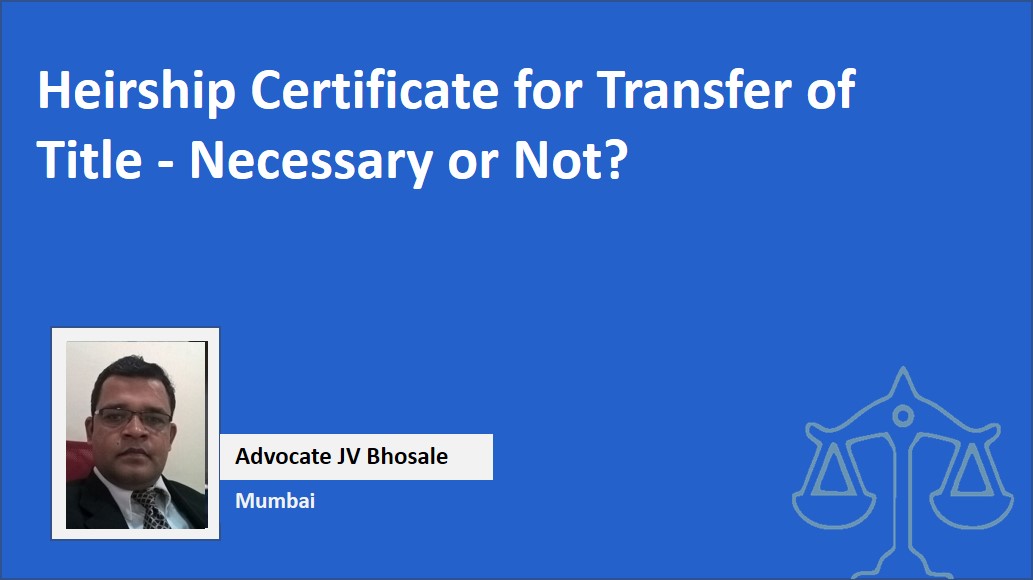Marriage between Hindu girl and Muslim boy
April 05, 2024 हिंदी में पढ़ेंTable of Contents
- Interfaith Marriage in India
- Hindus and Muslims do marry without changing their faith in India
- Marriage Under Muslim Law
- Marriage Under the Hindu law
- Under the Special Marriage Act, 1954
- Guide on Registration of Inter-religious Marriages
- As per Islamic law Marriage of Hindu girl with Muslim boy is irregular
- Punjab and Haryana HC: Marriage Invalid as Muslim Woman Didn't Convert To Hinduism
- Why do you Need a Lawyer?
Marriage between a Hindu girl and a Muslim boy is governed under the Hindu law, Muslim Law, and Special Marriage Act, 1954.
The & quot religion& quot of the marriage is ascertained by the customs and ceremonies performed therein. A saptapadi (& quot seven steps& quot ) is crucial for a Hindu marriage, while a nikahnama along with a qazi and two witnesses, among other things, hold importance in an Islamic wedding. Consequently, either of them would be bound by the laws relating to maintenance, divorce, inheritance, adoption, and succession according to the religion of marriage.
Interfaith Marriage in India
& quot Special Marriages& quot or & quot Inter-religious marriages,& quot are valid regardless of the couple's previous religious beliefs. The Special Marriage Act, which regulates these partnerships, makes it possible for inter-faith couples or individuals who seek marriage without the constraints of personal laws, to do so in India. For such a marriage to take place, certain requirements must be met, such as whether both parties are major or not and not having any other living spouse. It is an individual's right to decide who they want to marry and this has been upheld by the Supreme Court as well, regardless of their religion or caste. Despite the fact that in some places there has been controversy surrounding interfaith relationships, particularly those between Hindus and Muslims. There have been reports of commercials and films depicting Hindu-Muslim relationships receiving negative press and risking legal repercussions. However, there is a higher level of religious integration and acceptance of interreligious marriages in the southern part of India, where Hindus are more accepting of their Muslim or Christian neighbours. Notably, Goa is the only Indian state to have a universal civil code that eliminates inequalities based on caste, gender, or religion and ensures that every resident is treated equally under the law when it comes to marriage and other private concerns.
Hindus and Muslims do marry without changing their faith in India
In Indian society, heterogeneous religious marriages have long existed. Hindu-Muslim couples who express satisfaction in their religious backgrounds without feeling obliged to abandon or degrade their individual religions do exist in a different India, despite the opposition from religious fundamentalists. It is crucial that we create an atmosphere where these many aspects of India can not only coexist but also be embraced, as opposed to being judged or mocked for having different ideas.
Marriage Under Muslim Law
In the event of Marriage between a Muslim girl and a Hindu boy under Muslim law, The Hindu boy will need to convert to Islam for the solemnization of the marriage, as the marriage between a Muslim and a non-Muslim is not recognized by Islam. Muslim law contains specific provisions for conversion. A Muslim marriage requires a proposal (Ijab) from one party and acceptance (Qubul) from the other as is required for a contract. Moreover, the consent to the marriage must be free of coercion, fraud, or undue influence. It should be noted that Islam expressly forbids Muslims from people who aren't Muslims, Christians, or Jews. So while a marriage according to Hindu law would be a perfectly valid marriage under the Special Marriage Act, it would not be considered under the Muslim religious code and would be deemed to be an adulterous (and sinful) relationship.
Marriage Under the Hindu law
Hindu law does not contain any specific provisions for conversion, but both parties (bride & bridegroom) must be Hindus in order to get married under Hindu Marriage Act. To ascertain the “ religion” of the marriage, the customs and ceremonies performed therein may be considered. A saptapadi (“ seven steps” ) is crucial for a Hindu marriage. The Muslim girl could convert to Hinduism and solemnize the marriage according to Hindu rites, which will bring it within the purview of the Hindu Marriage Act. A marriage between two Hindus may be solemnized under this Act, if at the time of the marriage the following conditions are fulfilled, namely:
-
No party should be already married, i.e. neither party should have a spouse living at the time of marriage. Thus, this Act prohibits polygamy.
-
At the time of marriage, neither party should be incapable of giving valid consent due to unsoundness of mind. Even if he/she is capable of giving valid consent, should not be suffering from a mental disorder to an extent that makes him/her unfit for marriage and procreation of children. He/she should not be subject to recurring attacks of insanity either.
-
The parties should not be underage. The bridegroom should be a minimum of 21 years of age, and the bride should be at least 18 years old.
-
The parties should not be sapindas or within the degrees of prohibited relationship, unless any custom governing them allows marriage between such relations.
According to Section 11 of the Act, a marriage can even be declared null and void if either party presents a petition and if any of the following are contravened:
-
Either of the parties is already married and has a spouse living at the time of marriage.
-
Either party is underage, i.e. groom below 21 years of age and bride below 18 years.
-
The parties are sapindas or within the degrees of prohibited relationship.
According to Section 12, a marriage, although valid can later be annulled on any of the following grounds:
-
If either party is impotent and therefore unable to consummate the marriage.
-
When at the time of marriage, either party is not capable of giving valid consent due to unsoundness of mind. Even if he/she is capable of giving valid consent, has been suffering from a mental disorder to an extent that makes him/her unfit for marriage and procreation of children, or is subject to recurring attacks of insanity.
-
If the consent was obtained forcefully, or fraudulently.
-
If the bride was pregnant by another man other than the groom at the time of marriage.
-
Section 7 of the Act states that a Hindu marriage can be duly performed in accordance with the ceremonies and customs of either the bride or the groom. These ceremonies also include the Saptapadi i.e. taking of seven steps jointly before the sacred fire.
It has been stated that if Saptapadi is included in the rites and ceremonies, then the marriage becomes complete and binding when the seventh step is taken.
Under the Special Marriage Act, 1954
The most ideal way would be for both partners to get their marriage registered under the Special Marriage Act. They can also have a wedding performed according to their own religious rites, for their own satisfaction and no conversions are required. The Special Marriage Act, 1954 provides for a special form of marriage in certain cases and for the registration of such and certain other marriages, and also for divorce available to all citizens of India married under the Act. A marriage between any two persons may be solemnized under this act, if at the time of the marriage the following conditions are fulfilled, namely:
-
Neither party has a spouse living:
-
Neither party is capable of giving the valid consent to it in consequence of unsoundness of mind or
-
though capable of giving valid consent, has been suffering from mental disorder of such a kind or to such an extent as to be unfit for marriage and the procreation of children: or
-
has been subject to recurrent attacks of sanity
-
the male has completed the age of 21 years and the female the age of eighteen years
-
The parties are not within the degrees of prohibited relationship:
-
Provided that where a custom governing at least one of the parties permits of a marriage between them, such marriage may be solemnized, notwithstanding that they are within the degree of prohibited relationship and
-
Where the marriage is solemnized in the State of Jammu and Kashmir, both parties are a citizen of India domiciled in the territories to which this Act extends}.
It should be noted that Islam expressly forbids Muslims from people who aren't Muslims, Christians, or Jews. So while a marriage according to Hindu law would be a perfectly valid marriage under the Special Marriage Act, but it would not be considered valid under the Muslim religious code and would be deemed to be an adulterous (or sinful) relationship.
Guide on Registration of Inter-religious Marriages
The procedure to register an inter-religious marriage is-
1. Giving Notice of the Marriage Couples must begin the process by giving a written notice to the appointed Marriage Officer in order to solemnise a marriage under the Special Marriage Act. This important stage is giving notice to the marriage officer in the district where either the bride or the groom has lived for at least thirty days prior to giving the notification. There is a list of mandatory paperwork that must be submitted in addition to the marriage application form, including multiple copies, proof of age (such as a birth certificate or passport), proof of address (such as a passport or voter ID card), and photo identification (such as a PAN card or voter ID card). Passport-sized pictures of the bride and groom must be included. The marriage has to be performed within three months of the marriage or the notice will have to be submitted again
2. Publication of the Notice The Marriage Officer must keep a record of the marriage notice in their office and enter a true copy of the notice in the Marriage Notice Book, which is open to the public without charge during reasonable hours, in order to solemnise a marriage under the Special Marriage Act. In addition, the Marriage Officer posts a copy of the notice in a conspicuous spot inside their office. When a couple does not have a house in the designated district, a copy of the notice will be given to the marriage officer in the couple's home district, who will likewise post it in their office.
3. Objecting to the Marriage, inquiry and procedure After a Marriage Officer publishes the marriage notice, any person can object to the intended marriage if it violates any of the conditions for a valid marriage under the Special Marriage Act. The objection must be made within thirty days of the notice publication. Couples have 30 days to file an appeal to the district court in circumstances where objections are upheld. The judgement of the court is final. A new notification is necessary if you get married after the court's ruling but not within three months. The objections which are upheld usually are related to the couple being minor or having a living spouse.
4. Performing the Marriage In front of the marriage officer, couples sign a declaration with three witnesses present. The marriage may take place in the Officer's workplace or another location for a cost. Any type of cultural or religious event is acceptable, but a particular declaration needs to be recited. The statement that the couple take each other to be lawful wife and husband has to be made in any language followed.
5. The Marriage Certificate The marriage certificate is signed by the marriage officer after the ceremony. This certificate, which is signed by the couple and three witnesses and attests to the marriage's validity and compliance with legal criteria, serves as official documentation of their marriage under the Special Marriage Act, 1954
As per Islamic law Marriage of Hindu girl with Muslim boy is irregular
Islam strongly supports marriage and discourages celibacy. Islamic law sees marriage as a contract, in contrast to Hindu law, which considers it as a sacrament. It is important to remember that a marriage between a Muslim and a Hindu is not recognised as lawful under Muslim law. As a result, these partnerships do not give birth to the many rights that come along with a legal marriage. However, a Supreme Court decision states that children born from such unions are regarded as genuine and are entitled to a part of their father's wealth. There are basically three types of marriages recognised by Islamic law, known as & quot Nikaah& quot : sahi (legal), batil (invalid), and fasid (irregular). According to Islam, these classifications define the marriage's legal standing.
Punjab and Haryana HC: Marriage Invalid as Muslim Woman Didn't Convert To Hinduism
The marriage of a Muslim woman (18) and a Hindu man (25) was recently declared invalid by the Punjab and Haryana High Court because she hadn't converted to Hinduism prior to the ceremony. The pair can live together, though. In response to an interfaith couple's request for protection after receiving threats from their families, the court reached this conclusion. On January 15, they got married in a Hindu temple. They went to the high court after requesting security from the Ambala superintendent of police but receiving no answer. The court ordered the Ambala SP to assure their safety, enabling them to live together while having their lives and liberties protected.
Why do you Need a Lawyer?
Rights and laws related to marriages between individuals of different religions in India can be confusing. In order to get clarity, you can approach a family lawyer. If you have been wronged by someone regarding your rights or property, you can seek legal remedies. A good family lawyer will help you in your legal proceedings at every step of the way. A lawyer will help and guide you in the right direction after understanding the specific facts and circumstances of your case. He/She will draft the required suit/documents/legal notices, will devise the best method you need to undertake in order to get justice, and will also represent you in the courts if need be. Thus, hiring a family lawyer will help you in more ways than one. You can also use LawRato's Ask a Free Question service to get free advice on your legal issue from expert lawyers.
These guides are not legal advice, nor a substitute for a lawyer
These articles are provided freely as general guides. While we do our best
to make sure these guides are helpful, we do not give any guarantee that
they are accurate or appropriate to your situation, or take any
responsibility for any loss their use might cause you. Do not rely on
information provided here without seeking experienced legal advice first. If
in doubt, please always consult a lawyer.
The internet is not a lawyer and neither are you.
Talk
to a real lawyer about your legal issue.

Comments by Users
Liza
Agr ek ladka Hindu se muslim Bane to usne name change Kiya khudka lekin papa ka name aur title alag ho to issa kuch issue hoga
Reply by LawRato
It is not clear whether you have changed your name for the purpose of marriage or for any other reason. It is also not clear that you are asking regarding propery inheritence or rites of marriage. Since your question is specific and requires more information in order to guide you better, it is advised that you click on the link below and send in your detailed query for Free Legal Advice.
Free Legal Advice by Expert Lawyers
Priyanka
What is the validity of a marriage of a Muslim male with a hindu female
Reply by LawRato
Marriage between muslim male and hindu female is valid and has been recognised as so under the Special Marriage Act. The article above explains this in detail.
Tariq
I am a Muslim and girl is hindu
I want marry her
Reply by LawRato
In India, marriage between individuals of different religions is legal. There is no law in India that prohibits marriage between individuals of different religions. However, if you wish to marry a Hindu girl, you may need to follow certain procedures and fulfill certain requirements in order to get married, under Special Marriage Act.
Generally, a valid marriage in India requires the consent of both parties, and both parties must be at least 18 years old. There may also be certain documents that need to be presented in order to register the marriage.
Wasim Akram Mondal
I am a 23 years muslim boy lives in India.. can i marry with my 22years age love who belongs in a hindu family...?
Pooja
Kitne pese milte hai shaadi krne p govt ki trf se
Legal Questions Answered by Top Lawyers
Family Law Articles
User Reviews
Please tell rights of muslim girl in marriage
Very nice article. Can you please share the law governing hindu-muslim divorce?
Good article on marriage of hindu and muslim. Also tell about other religions.
Can you please share about divorce between hindu girl and muslim boy?
what is the procedure to register a hindu-muslim marriage?
Good work with the article. Solved all my legal queries. Regards.
thank you for the article
thanks for the information
thank you for the information
good work. Keep it up
very well written
Detailed and informative.
whom to contact for any legal query?
great advice. Thanks
how to contact a lawyer from your website
nicely written
thanks for the legal advice
amazing article
nice article. Good legal advice
Very nice article.
Very helpful in understanding the law.
The article is written ver well. Learned a lot about my case through this.
solved my queries.
It’s a very nice article.
VIEW ALL


 438+ Lawyers are online
438+ Lawyers are online 












_.jpg)